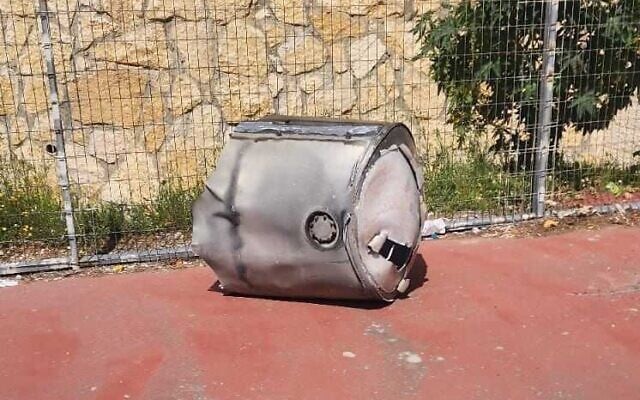In a dramatic escalation of regional tensions, a ballistic missile fired by the Iran-backed Houthi rebels in Yemen triggered air raid sirens early Wednesday morning in Haifa and the Western Galilee — the first such incident in northern Israel since the current conflict reignited. The Israel Defense Forces (IDF) confirmed that the missile was intercepted successfully by its air defense systems, averting what could have been a deadly strike.
First Sirens in Haifa Since Ceasefire With Hezbollah
The missile attack marked a significant geographic shift in the Houthi threat. Until now, the majority of Houthi-fired projectiles have been aimed at central and southern Israel. Wednesday’s sirens in Haifa and the Western Galilee were the first in the area since a ceasefire with the Lebanese terror group Hezbollah took effect in November 2024. Explosions from the interception were clearly heard in Haifa, jolting residents from sleep at 4 a.m. and sending over a million people scrambling for bomb shelters.
While no direct injuries from the missile or falling debris were reported, Magen David Adom emergency services treated several individuals who were hurt while rushing to shelters.

Houthi Claims and IDF Response
The Houthis claimed responsibility, boasting that they had targeted a “vital Zionist enemy target” in Haifa. They also asserted they had launched a drone toward Tel Aviv — though the IDF reported no drone incursions from Yemen overnight.
In a precautionary move, the Israel Police instructed the public not to approach any fallen debris, warning it may still contain explosives. Police forces were also placed on alert to search for missile remnants if reported.
Early Alert System Faces Glitches
The IDF had recently rolled out a new missile early warning system, which uses push notifications to provide civilians with a 3–5 minute advance alert before sirens sound. During Wednesday’s incident, however, the system failed to operate as intended.
The IDF acknowledged that although the missile was detected in time, a “malfunction occurred in the transmitting of information” from the Air Force to the Home Front Command. This resulted in delays and incomplete alerts for the civilian population.
“As a result, the preliminary directives were activated at shorter intervals than required,” the military said in a statement, noting that the issue has since been addressed.
This was the second time the system has faltered since its launch. During a previous Houthi missile attack on central Israel just days earlier, many residents reported receiving no alert at all.
Surge in Houthi Missile Activity
Since March 18, when Israel resumed its military operations in Gaza, the Houthis have launched over 20 ballistic missiles and several drones at Israel. According to military sources, only half of those missiles reached Israeli territory and triggered sirens — the rest fell short.
Wednesday’s launch was the latest in a series of Houthi escalations that resumed following the collapse of the temporary ceasefire between Israel and Hamas in January 2025. During the initial phase of the conflict, the Houthis launched around 40 ballistic missiles and multiple drones toward Israel, including a deadly strike in July that killed one civilian and injured several in Tel Aviv.
In response, Israel has conducted several targeted airstrikes against Houthi military infrastructure in Yemen. Meanwhile, the United States has taken a leading role in international efforts to deter Houthi aggression, launching extensive airstrikes against Houthi leadership and supply networks in recent weeks.
Part of a Larger Axis of Hostility
The Houthis, officially known as Ansar Allah, are staunchly aligned with Iran and share ideological and strategic goals with Hezbollah and Hamas. Their slogan, “Death to America, Death to Israel, a Curse on the Jews,” underscores their vehement opposition to the existence of Israel and their alignment with Iran’s broader regional ambitions.
With the Gaza war still raging and the regional coalition of Iran-backed actors — including Hezbollah, Hamas, and the Houthis — continuing coordinated attacks, Israel remains on high alert across multiple fronts.
The early-morning missile attack on Haifa serves as a stark reminder of the growing reach and unpredictability of the threats Israel faces. The IDF has reiterated its commitment to strengthening its multi-layered missile defense systems and correcting flaws in its civilian alert mechanisms.
As tensions escalate, the citizens of Israel remain braced for further challenges in what is increasingly becoming a multi-front conflict.